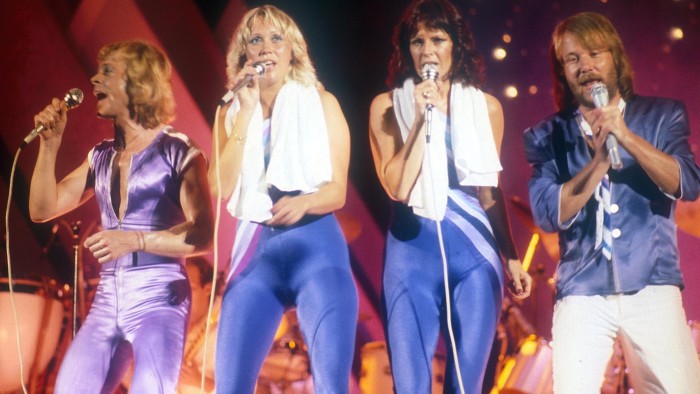Stay informed with free updates
Simply sign up to the Artificial intelligence myFT Digest — delivered directly to your inbox.
Abba co-founder Björn Ulvaeus has warned that generative artificial intelligence “has the power to cause great damage” to musicians after a report showed that the technology risked costing artists about a fifth of their revenues by 2028.
An economic study, published by the International Confederation of Societies of Authors and Composers (CISAC) on Wednesday, found the industry faces a significant fall in income as AI-generated music is trained on, and then replaces, the work that they do.
Ulvaeus, president of CISAC, which commissioned the research, told the Financial Times it was “very unfair” that tech companies should be able to use artists’ work “without asking or remunerating” them.
Abba classics were cited by record labels in a lawsuit this year against two AI start-ups, Suno and Udio. The legal claim alleged that the companies had unlawfully used technology to rip off copyrighted music to produce songs. The complaint pointed to a song called “Prancing Queen” that closely resembles work by the Swedish band.
Suno and Udio have denied the claim, arguing that their technology generates entirely new music and that their activities amount to fair use of existing material under copyright law.
Ulvaeus said it was important for policymakers to put in place regulations to protect creators’ rights and help develop AI frameworks so that artists were paid fairly for their work.
Despite providing much of the creative output used to train “gen AI”, music and audiovisual creators risk losing 24 per cent and 21 per cent of their revenues to the technology, respectively, by 2028, the CISAC study found. This would amount to a cumulative loss of €22bn over a five-year period.
Meanwhile, revenues for gen AI providers in music and audiovisual are expected to be €9bn in 2028, up from €300mn now, according to the report.
CISAC said that generative AI would “enrich tech companies while substantially jeopardising the income of human creators in the next five years”. The body argued that “these are revenues derived directly from the unlicensed reproduction of creators’ works, representing a transfer of economic value from creators to AI companies”.
In the audiovisual sector, translators and adaptors for dubbing and subtitling would be hit hardest, with more than half of their revenue at risk, according to CISAC, which represents more than 5mn artists and composers. The study was conducted by consultancy PMP Strategy.
Despite his concerns, Ulvaeus is a supporter of using AI in the creative process, saying the technology would represent the “biggest revolution” ever seen in music.
If AI had existed in the 1970s, Abba would have used the technology to suggest lyrics or to add other styles such as Motown to their sound, he said.
AI had the potential to increase creativity and productivity in many industries. Ulvaeus said that he and Abba’s other main songwriter, Benny Andersson, used to work “office hours” but still only produced about 14 songs a year.
The best AI models would be able to take artists into “unexpected directions”, he said.



